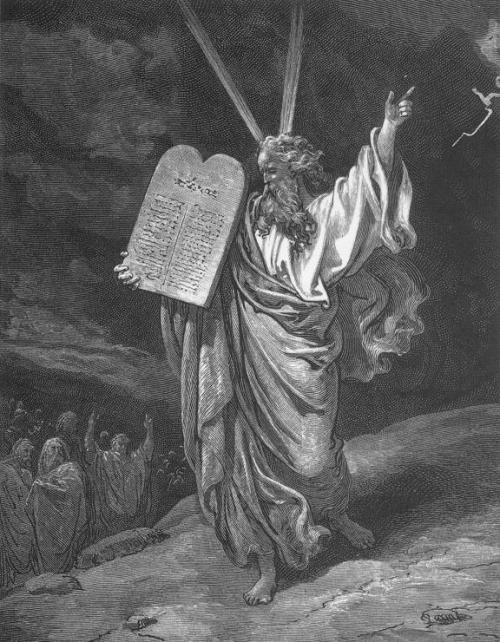
Occasionally while reading the assignments some of my students I get the impression that some see little value in the historical references provided in the Gospels. Some even appear embarrassed by them, while others view them as simply irrelevant or non-essential. Such attitudes reflect a lack of understanding of the doctrines of Inerrancy and Inspiration. Briefly stated, the doctrine of Inerrancy teaches that the scriptures are without error or falsehood. E. J. Young defined inerrancy in this manner, by “this word we mean that the Scriptures possess the quality of freedom from error. They are exempt from the liability to mistake, incapable of error. In all their teachings they are in perfect accord with the truth.”1
Modern audiences perceive a problem with the position that the Bible is free from historical errors because their standard of historical accuracy is quite different than that of ancient authors and their audiences; consequently, they find it hard to believe that the Gospels are free from historical errors. Ironically, today’s audiences tend to trust the conjectures of modern scholars who are 2000 years removed from the events recorded in the Gospels. The problem with placing one’s faith in such scholars is that quite often they disagree among themselves with respect to the dates of historical events; consequently, how can they possibly be viewed as credible evaluators of the accuracy of the Gospel writers? One of the primary reasons why modern scholars can only conjecture about historical dates is due to a lack of specific details available to them; consequently, they have to make educated guesses about an ancient author’s point of reference. For example, when Luke wrote “Now in the fifteenth year of the reign of Tiberius Caesar, . . . the word of God came to John (i.e., the Baptist, Luke 3.1)” concerning this period scholars have to guess was Luke referring to the year that Tiberius became the sole emperor or when he joined Augustus as co-regent, or was he referring to a different sphere of political authority altogether before he became co-regent with Augustus? On this issue modern scholars are equally divided. The salient point is that Luke’s audience knew the approximate period Luke was referring to and that was sufficient for them, and it should be sufficient for today’s audiences as well. In spite of the inability of modern scholars (both secular and Evangelical) to come to agreement on historical dates many Christians are either intimidated by secular opinions of the Gospels, or they simply see little value in defending the historical data contained in the Gospels since they perceive them as nonessential to its message.
Given this dilemma one should first understand the differences in modern and ancient audiences with respect to recording history. Today’s audiences typically expect to learn about the day, month, and year of a particular event, and many times they are even interested in knowing its exact hour of an event. For example, by causally researching the assassination of John F. Kennedy one can quickly discover that he was shot at 12:30 pm CST on Friday November 22, 1963, and was pronounced dead a short time later at 1:00 pm. Ancient audiences had no expectation of these kinds of details, instead they were more concerned with the significance of what happened instead of any minute precision with respect of its timing. Furthermore, ancient authors felt no need to provide such exacting details since they never dreamed that in the future their credibility would someday be questioned for omitting such minutia with respect to the timing of an event. It is inappropriate, therefore, to hold the Gospel writers to modern standards for historicity since as they wrote they were not aware of such standards, nor did these modern standards fit their primary purposes or meet the limited expectations of their ancient audiences. Instead, the Gospel authors should be evaluated by the standards of their own era. Consequently, Christians should not assume that historical data contained in the Gospels, or the rest of the Bible for that matter, is fallacious. Moreover, in the absence of any concrete evidence to the contrary, they should assume that any historical markers contained the Gospels were accurately recorded by their authors in ways that would have meet the limited expectations of their ancient audiences.
We can trust that the authors accurately provided historical data in their Gospels because the doctrine of Inspiration teaches that all scriptures were inspired by the Holy Spirit (2 Tim. 3:16-17; 2 Pet. 1.17). In other words, as the Gospel writers composed their biographies on the life and message of the Lord Jesus Christ, the Holy Spirit inspired and guided them as they wrote; and as a result the Spirit protected their efforts from containing errors that might cause the original audiences to reject their respective messages. This means that Luke 3.1-2 and 23 are just as inspired by the Holy Spirit as John 3.16. The doctrine of Inspiration does not teach that only special parts of the Bible are inspired, but that the Scriptures in their entirety are inspired. John, under the inspiration of the Holy Spirit, wrote “This is the disciple who is testifying to these things and wrote these things, and we know that his testimony is true” (John 21:24). Additionally, we have no evidence that the other Gospel writers were any less interested in historical accuracy than John. In fact, Luke wrote in his preface that “Inasmuch as many have undertaken to compile an account of the things accomplished among us, just as they were handed down to us by those who from the beginning were eyewitnesses and servants of the word, it seemed fitting for me as well, having investigated everything carefully from the beginning, to write it out for you in consecutive order, most excellent Theophilus; so that you may know the exact truth about the things you have been taught” (Luke 1:1-3). Did you catch that? One of Luke’s main purposes for his Gospel was to “carefully” document the “exact truth” about “everything” that Jesus taught and accomplished. Consequently, Christians have little reason to assume that the historical data contained in the Gospels is any less inspired than other parts of the Bible, or that historical accuracy was not a concern of the Holy Spirit as he guided the biblical authors.
Lastly, with respect to the trustworthiness of the Scriptures, Paul wrote in Romans 10:17 that “Faith comes by hearing, and hearing concerning the word of Christ.” If Christians feel that they have to make admissions or excuses about perceived historical inaccuracies in the Gospel accounts, then how can we expect our listeners to have faith in those same records? Any lack of trust on our part in the historical accuracy of the Gospels can only undermine our proclamation of their message. The Psalmist wrote “I have inherited Your testimonies forever, for they are the joy of my heart” (Ps 119.111). Godliness is the fruit of faithfulness, and faith is demonstrated by confidence in God’s word, not hesitancy. The Scriptures are to be a joy in our lives, not something that we consider suspect. The Psalmist also wrote “So I will have an answer for him who reproaches me, for I trust in Your word” (Ps 119:42). The Psalmist trusted in the veracity of God’s written word more than those that challenged and ridiculed him for his confidence in what God has said. Consequently, instead of dismissing “perceived” historical inaccuracies as not really essential to the message of the Gospels or important to the defense of Christianity, we should have complete confidence in their inspiration, and commit ourselves to discovering the truth of their accuracy. Moreover, if the scriptures are truly inspired and inerrant, then the Spirit will bless our efforts and vindicate Himself and His word as accurate, truthful, and therefore completely trustworthy.
- J. Young, Thy Word Is Truth (Grand Rapids: Eerdmans, 1957), 113.
Monte Shanks Copyright © 2011



 The Dirty Secrets about “Q” and the Synoptic Question (or Problem)
The Dirty Secrets about “Q” and the Synoptic Question (or Problem)